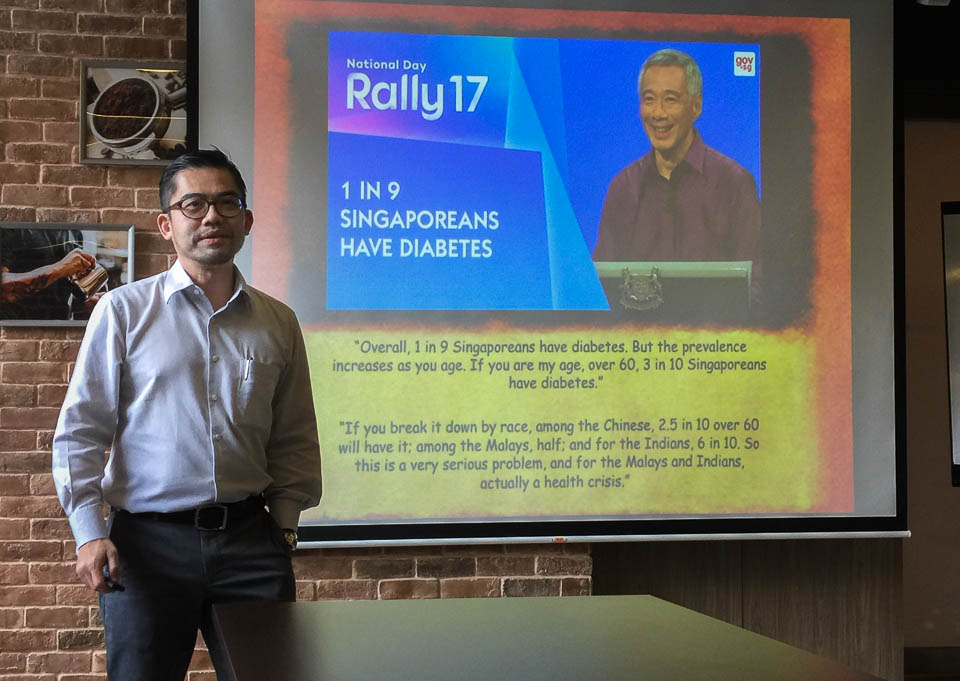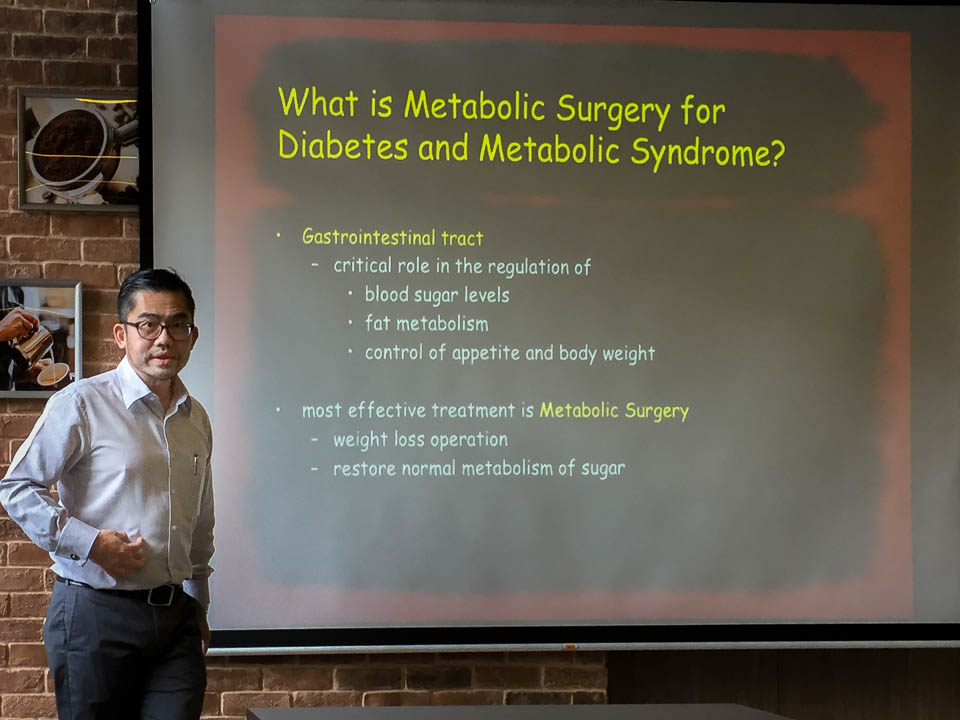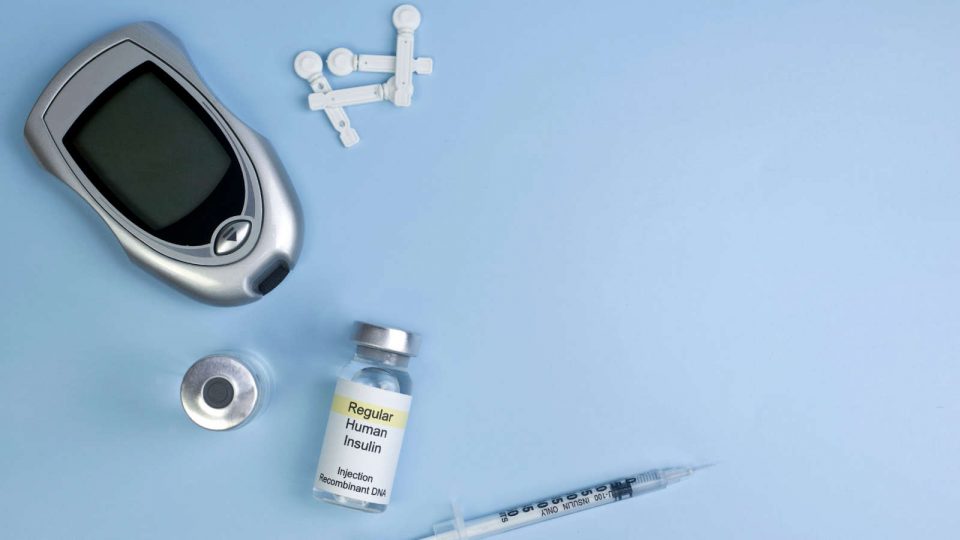During the National Day Rally 2017, PM Lee mentioned that 1 in 9 Singaporeans has diabetes. His remark “Singapore is almost world champion – just behind the US” shows how serious diabetes is in Singapore. To combat diabetes, PM Lee suggested four simple ways: go for regular medical check-ups, exercise more, eat less and eat healthily, as well as cut down on soft drinks.
To treat diabetes, one needs to control his blood sugar levels in the body. Most people do it by medications, dietary changes and exercise. But, do you know that there’s a surgical method to treat diabetes?
We spoke to Dr. Melvin Look to gain more insights about this breakthrough in diabetes treatment.
RS: Hi Dr. Melvin Look. It’s a pleasure to meet you. Tell us about yourself!
Dr. Look: I am a Consultant Surgeon at PanAsia Surgery in Mount Elizabeth Hospital. My specialty interest is in Gastrointestinal and Laparoscopic Surgery, and I have also been performing Bariatric Surgery for more than 15 years.
In the early days of Bariatric Surgery our primary objective is in achieving sustainable weight loss for our patients with morbid obesity. Along the way, we also found that these operations can also result in long-term remission of diabetes.
Bariatric Surgery now includes this important aspect of what we call Metabolic Surgery, where we aim to cure obesity-related medical problems (such as diabetes, hypertension and dyslipidemia) beyond weight loss alone.

RS: Awesome. How do you think Singaporeans are doing, in terms of diabetes?
Dr. Look: Diabetes is one of the major health problems in Singapore and the prevalence is expected to increase over the next few decades. There are an estimated of 440,000 Singapore residents with diabetes currently and probably many more pre-diabetics who have glucose intolerance.
In Singapore, 1 in 3 people with diabetes are undiagnosed, and another 1 in 3 of those being treated for diabetes does not achieve adequate blood sugar control. This shows that many people living with harmful levels of blood sugars can be without any tell-tale symptoms. It is this chronic elevation of your blood sugar levels which is harmful and leads to end organ damage such as kidney failure, blindness, heart disease and limb amputations.
RS: What do you think are the causes of diabetes? What can we do to prevent diabetes?
Dr. Look: Your genes determine whether you are at risk of developing diabetes, but many other modifiable factors also play a part. The good news is that 9 in 10 cases of diabetes can be prevented by simple lifestyle modifications such as eating healthy and avoiding processed sugars, stop smoking and regular exercise to achieve and healthy weight.
RS: Can diabetes be treated?
Dr. Look: The first step to the treatment of diabetes is a calorie restriction diet to achieve a healthy weight. Oral medication and insulin injections are often required to bring down the blood sugar levels. Good control of this is the key to avoiding the end-organ complications of diabetes.
Now, we also know that Metabolic Surgery is an excellent alternative for diabetic patients who want to consider surgery for a long-term cure. Randomized control trials have shown that post-surgical patients showed better improvements in quality of life and overall health compared with those who only received medication alone.

RS: What is Metabolic Surgery?
Dr. Look: One of the commonest Metabolic Surgery operation we do is the Laparoscopic Sleeve Gastrectomy. This is a keyhole surgical procedure that coverts the stomach into a long narrow tube about the shape and size of a banana. This limits the amount of food the patient can eat and enhances the effect of intestinal hormones to bring down blood sugar. See diagram.

RS: Who would you recommend to undergo the surgery?
Dr. Look: Patients who require more than one medication for diabetes, or who are poorly controlled despite multiple medications, should consider surgery. The best results are when patients come for surgery early, when they are young, rather than when they are older and have developed complications due to diabetes.
RS: How long does it take to perform this surgery? How many days do patients need to recover?
Dr. Look: It takes about 2 hours to perform this operation with keyhole surgery, and the patient stays in the hospital for about 3 to 5 days. The majority of patients are back to work and their normal routine 2 weeks after surgery.
RS: How effective is the Metabolic Surgery in treating diabetes compared to medications?
Dr. Look: Metabolic Surgery is highly effective in helping obese diabetics lose their excess weight. The majority of patients will achieve an Excess Weight Loss of about 70 to 80% after 18 to 24 months. In addition, these operations also have a complex adaptive effect on our gastrointestinal hormones which play an important role controlling blood glucose levels. As a result, metabolic surgery has an additional beneficial effect on the control and prevention of diabetes beyond weight loss alone.
Almost all patients will experience an improvement in their blood glucose control. About 70% will require less medication or no medication at all.
RS: What is the chance of diabetes returning after a patient undergo the Metabolic Surgery?
Dr. Look: Weight regain and recurrence of diabetes after Metabolic Surgery can happen, but this is rare and usually in non-compliant patients who are not motivated in maintaining their dietary recommendations.
RS: What are the risks and side effects associated with the surgery, if any?
Dr. Look: Laparoscopic Sleeve Gastrectomy is a very safe operation and serious complications, such as bleeding and leakage of the staple line, are rare. The main long-term side effects are heartburn and reflux, especially if the patient is already prone to this even before surgery.
RS: Could you share with us the cost involved in Metabolic Surgery?
Dr. Look: The estimated total cost is between $25,000 and $40,000, depending on hospital preferred and whether there are associated medical problems which require concomitant management. Many medical insurance policies do cover for these surgeries if the indication is medical and not cosmetic for elective weight loss alone.
RS: Should we need a consultation or more information, who should we contact?
Dr. Look: The PanAsia Centre for Weight Loss and Metabolic Surgery has a team of dedicated surgeon, nurses and dietician. You can call us at 6737-8538 or WhatsApp 9677-7940 for an appointment in any of our clinics.
Do you think this breakthrough is the future of diabetes treatment?
Dr Melvin Look is the Director of PanAsia Surgery in Mount Elizabeth Hospital, Mount Elizabeth Novena Hospital and Parkway East Hospital. He is a Consultant Surgeon in Gastrointestinal, Laparoscopic and Obesity Surgery, and has a special interest in performing Metabolic Surgery for the treatment of Diabetes. He underwent various training awards at the National Cancer Center Hospital in Tokyo, Royal Infirmary of Edinburgh UK, Mount Sinai Medical Centre New York, and Washington Cancer Institute in Washington DC.





